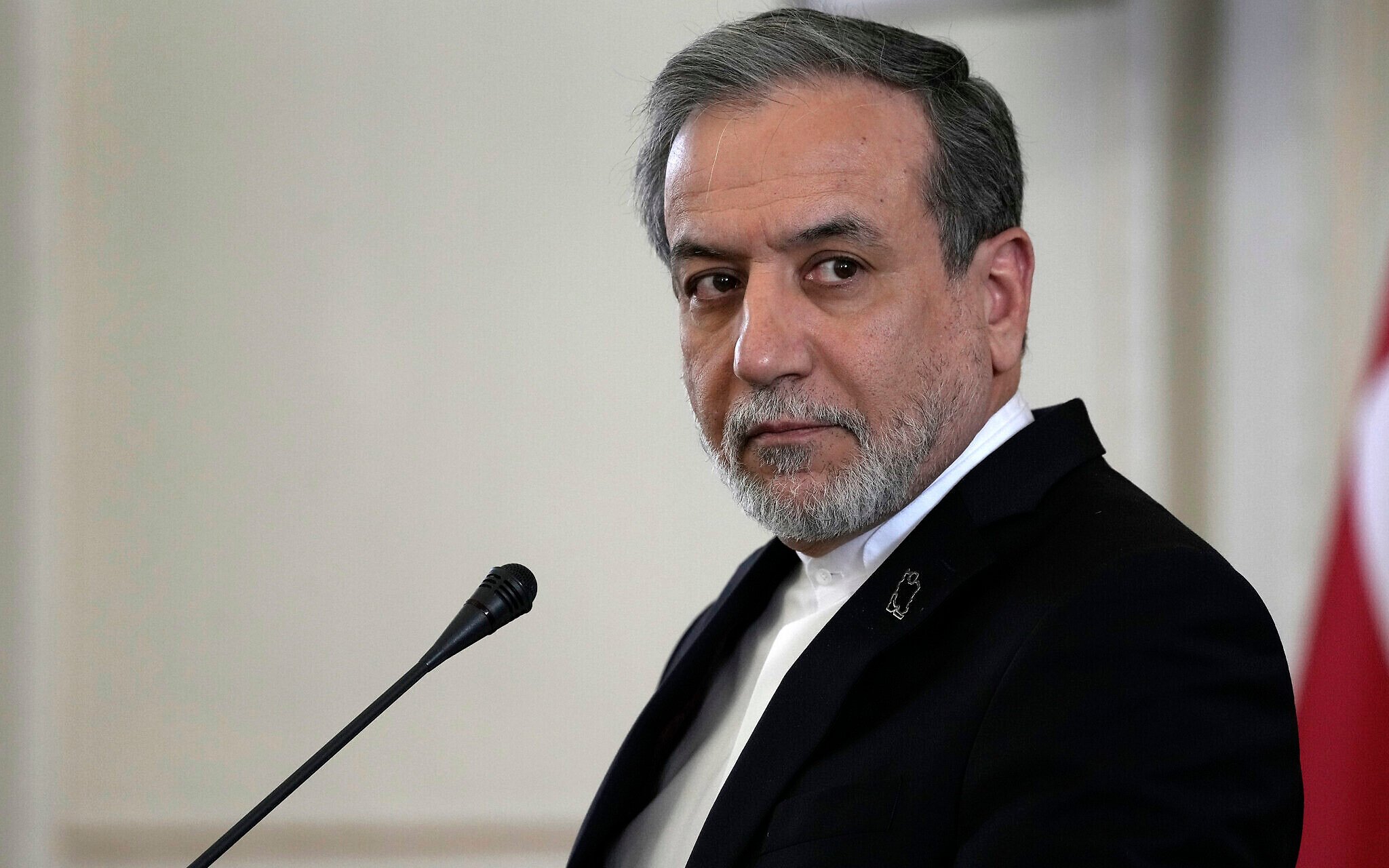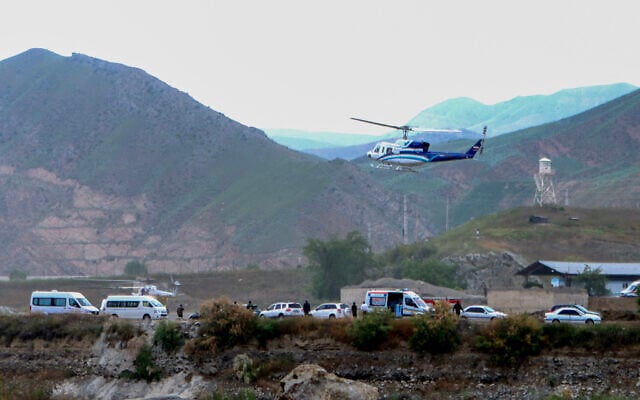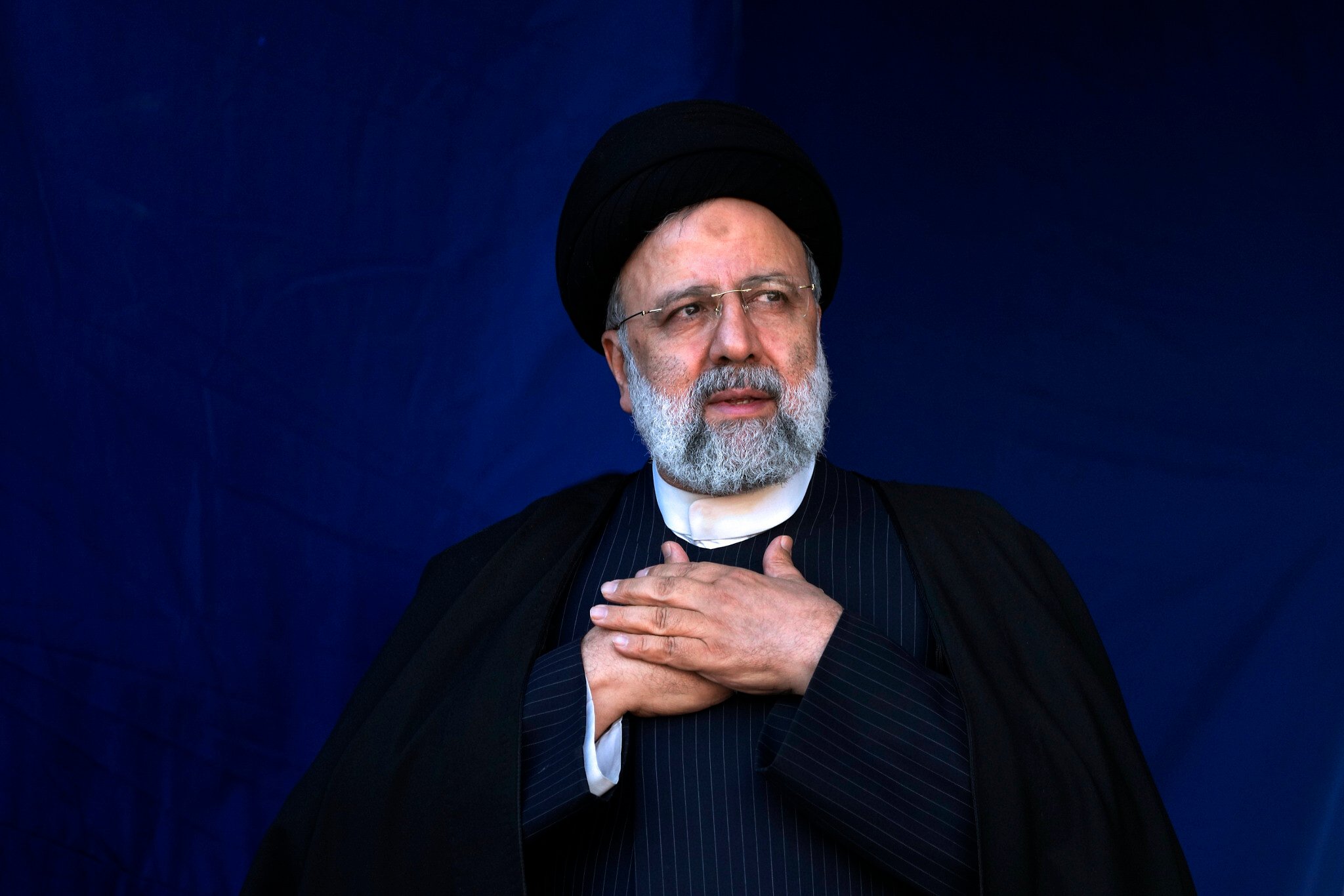



Iranian Foreign Minister Abbas Araghchi revealed Monday the relief in Tehran when it confirmed that Israel was not behind the helicopter crash last year that killed then-Iranian president Ebrahim Raisi and several members of his entourage.
During an interview with the local Channel 3 during events marking the first anniversary of Raisi’s death, Araghchi said, “Thank God, it has become clear that the martyrdom of martyr Raisi was not the work of Israel.”
Raisi, a hardliner long seen as a potential successor to Supreme Leader Ayatollah Khamenei, was killed on May 19, 2024, in a helicopter crash in a mountainous northwestern region near the Azerbaijan border.
The accident in inclement weather came at a time of acute tensions between Iran and Israel.
After Palestinian terror group Hamas led a devastating invasion of southern Israel on October 7, 2023, triggering war in the Gaza Strip, the Hezbollah terror group began attacking across the northern border, and other Iranian proxies in Yemen and Iraq also fired missiles and drones at Israel. Iran also carried out direct attacks on Israel.
Iran backs Hamas and Hezbollah. All three are avowed to destroy Israel.
At the time, an unnamed official told the media Jerusalem was not involved in the helicopter crash that killed Raisi.
“It wasn’t us,” the Israeli official, who requested anonymity, told Reuters.
Days after the crash, Iranian investigators said there was no sign of foul play.
Along with the 63-year-old Raisi, foreign minister Hossein Amir-Abdollahian and six other people were killed when an aging Bell helicopter went down in a foggy, remote mountainous region of Iran’s northwest while returning from the inauguration for a dam on the border with Azerbaijan.
Araghchi is leading the Iranian team during ongoing talks with the US on Tehran’s nuclear program.
Western countries, including the United States and Israel, have long accused Iran of seeking to acquire nuclear weapons — an allegation Tehran has consistently denied, claiming that its program is for peaceful civilian purposes. However, Iran has ramped up its enrichment of uranium to 60 percent purity, which has no application beyond nuclear weapons, and has obstructed international inspectors from checking its nuclear facilities.


